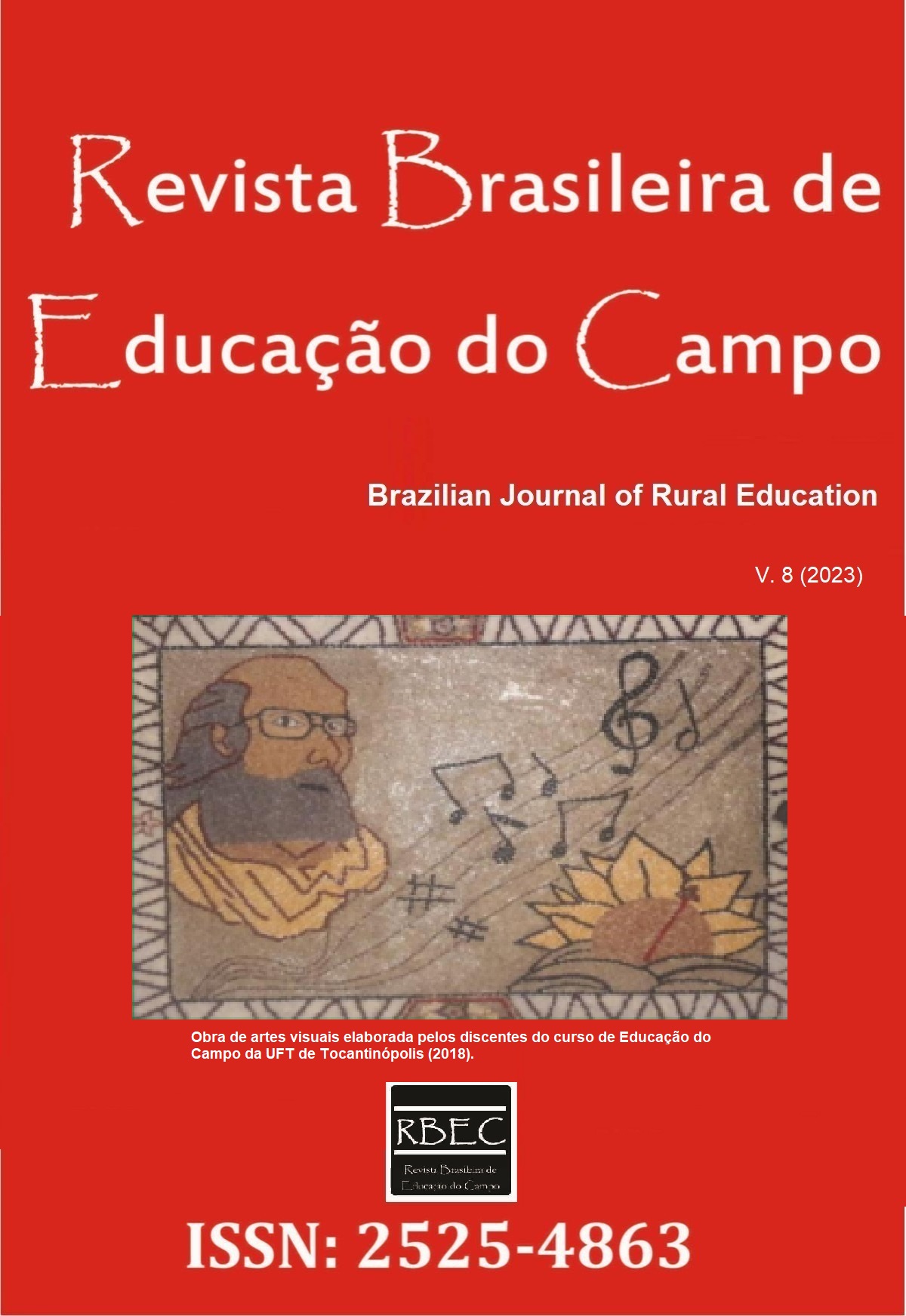Access to rural credit and gender: an analysis of the PRONAF Woman acquisition process in the Normandia Settlement in Caruaru - PE
DOI :
https://doi.org/10.20873/uft.rbec.e14939Résumé
ABSTRACT. The National Program for the Strengthening of Family Agriculture, PRONAF, represents the most relevant rural credit policy in Brazil. Through it, family farmers can invest and improve their agricultural production and socioeconomic conditions. However, demands from political-social movements brought about the need for gender policies that facilitated the inclusion of women in production in a more autonomous way. In 2003, PRONAF Woman was created with a line of credit aimed exclusively at female farmers, to facilitate and encourage their access to financing. This study proposed, through a qualitative approach, to study the access to PRONAF Woman by women farmers from the Normandia Settlement in Caruaru - Pernambuco. To this end, semi-structured interviews were carried out with the women of the settlement, secondary data were collected and the credit acquisition process analyzed. The results showed that, although PRONAF and PRONAF Woman represent important policies for family farming, their access is conditioned to requirements that, in Normandy, are not met in most cases. Local difficulties with water scarcity, irregular documentation and the settlement's own history make women farmers look for other, more accessible sources of credit.
Téléchargements
Références
Bardin, L. (2011). Análise de conteúdo. São Paulo: Edições 70.
Bezerra Neto, A. (2018). Políticas públicas como caminho para avanços econômicos e sociais: Estudo de caso no assentamento rural da comunidade Baixio Verde de Salgueiro-PE (Trabalho de Conclusão de Curso). Universidade Federal Rural de Pernambuco, Serra Talhada.
BNDES - Banco Nacional do Desenvolvimento. (2021). PRONAF Mulher. Recuperado de: https://www.bndes.gov.br/wps/portal/site/home/financiamento/produto/PRONAF-mulher. Acesso em: 05 mai. 2021.
BNDES - Banco Nacional do Desenvolvimento. (2022). Formas de apoio. Recuperado de: https://www.bndes.gov.br/wps/portal/site/home/financiamento/guia/formas-de-apoio. Acesso em: 13 abr. 2022.
Butto, A., Dantas, C., Hora, K., Nobre, M., & Faria, N. (Orgs). (2014). Mulheres rurais e autonomia: formação e articulação para efetivar políticas públicas nos Territórios da Cidadania. Brasília: Ministério do Desenvolvimento Agrário.
Centro – Centro de Formação Paulo Freire. (2021). O Centro. Recuperado de: https://centropaulofreire.org.br/o-centro/. Acesso em: 05 mar. 2021.
Cruz, M. H. S. (2018). Empoderamento das mulheres. Inc.Soc. 11(2), 101-114.
Flick, U. (2012). Introdução à metodologia de pesquisa: um guia para iniciantes. Porto Alegre: Penso.
Gil, A. C. (2010). Como elaborar projetos de pesquisa. (5. ed.) São Paulo: Atlas.
Hernández, C. O. (2009). Política de crédito rural com perspectiva de gênero: um meio de “empoderamento” das mulheres rurais? (Tese de Doutorado). Universidade Federal do Rio Grande do Sul, Porto Alegre.
Marinho, P. A. S., & Gonçalves, H. S. (2016). Práticas de empoderamento feminino na América Latina. Revista de Estudios Sociales, 56, 79-90.
Silva, A. M. (2019). O PRONAF como meio de empoderamento da mulher rural - uma análise da participação feminina e da influência da mediação no estado de Espírito Santo (Tese de Doutorado em Produção Vegetal). Universidade Federal do Norte Fluminense Darcy Ribeiro, Rio de Janeiro.
Todaro, M. P., & Smith, S. C. (2014). EconomicDevelopment. (12a ed.) Nova York: Pearson Editora.
Vergara, S. (2013). Projetos e Relatórios de Pesquisa em Administração. (14. ed.) São Paulo: Atlas.
Zorzi, A. (2008). Uma análise crítica da noção de empoderamento com base no acesso das agricultoras ao PRONAF Mulher em Ijuí-RS (Dissertação de Mestrado). Universidade Federal do Rio Grande do Sul, Porto Alegre.
Téléchargements
Publié-e
Comment citer
Numéro
Rubrique
Licence
© Amanda da Cruz Cavalcante, Rodolfo Araújo de Moraes Filho 2023

Cette œuvre est sous licence Creative Commons Attribution 4.0 International.
Proposal for Copyright Notice Creative Commons
1. Policy Proposal to Open Access Journals
Authors who publish with this journal agree to the following terms:
A. Authors retain copyright and grant the journal right of first publication with the work simultaneously licensed under the Creative Commons Attribution License that allows sharing the work with recognition of its initial publication in this journal.
B. Authors are able to take on additional contracts separately, non-exclusive distribution of the version of the paper published in this journal (ex .: publish in institutional repository or as a book), with an acknowledgment of its initial publication in this journal.
C. Authors are permitted and encouraged to post their work online (eg .: in institutional repositories or on their website) at any point before or during the editorial process, as it can lead to productive exchanges, as well as increase the impact and the citation of published work (See the Effect of Open Access).














